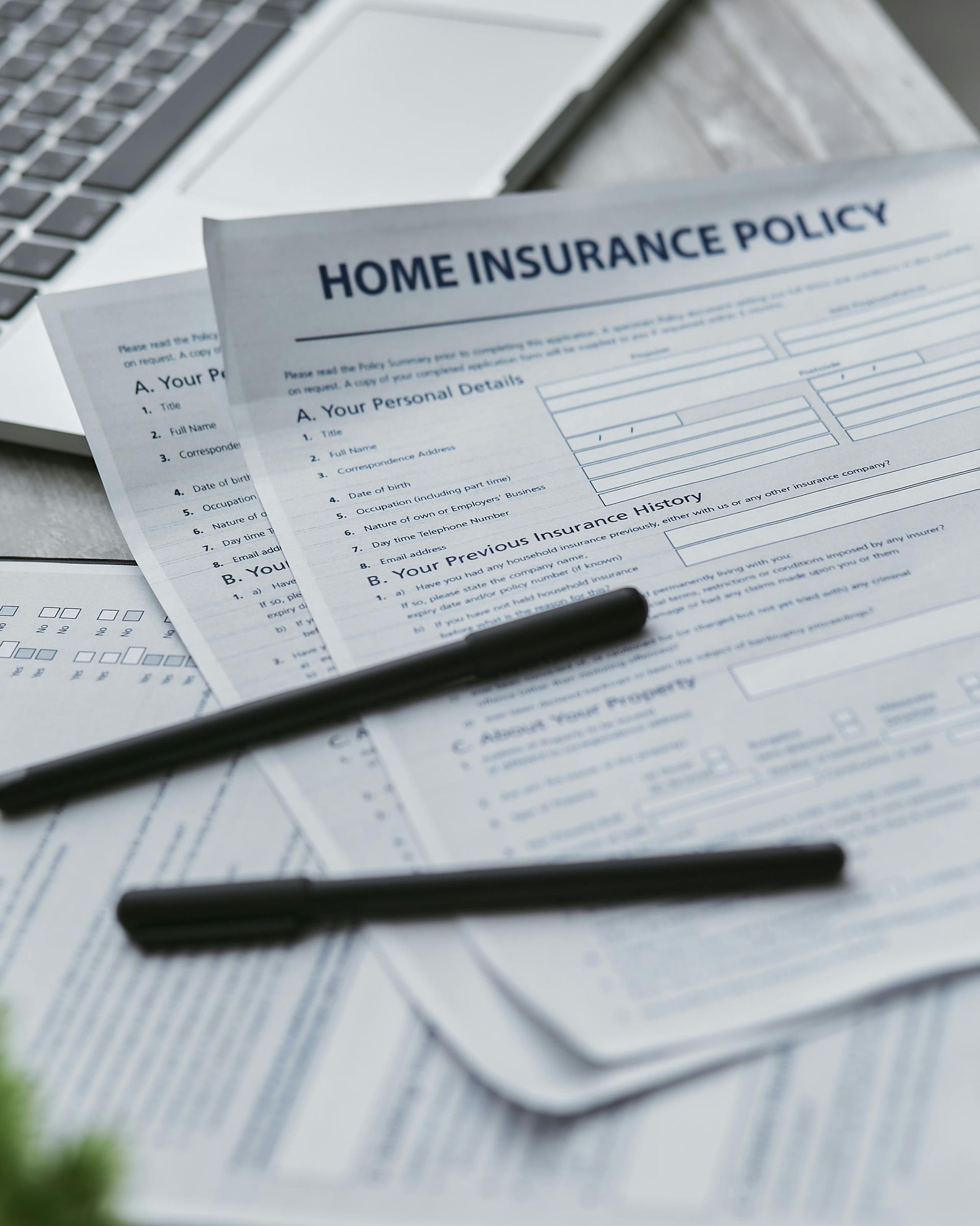Compare Top 10 Full Coverage Auto Insurance Quotes
Top 10 Full Coverage Auto Insurance Quotes Compared
Key Highlights
- Finding the right full coverage auto insurance involves comparing quotes from top car insurance companies to secure the best rates.
- State Farm and USAA often provide some of the most affordable car insurance quotes for full coverage policies.
- Full coverage isn't a single policy but a package that includes liability, comprehensive coverage, and collision coverage.
- Your final premium is influenced by your driving record, location, vehicle type, and selected coverage limits.
- You can lower your costs by seeking out various discounts, bundling policies, and adjusting your deductible.
Introduction
Are you searching for the best way to protect your vehicle and your finances? A full coverage auto insurance policy offers peace of mind by providing protection far beyond state-mandated minimums. While average rates can seem high, they vary significantly between providers. Shopping around and comparing quotes is the most effective strategy to find a car insurance policy that gives you robust protection without breaking the bank. This guide will help you navigate the top options available.
Top 10 Full Coverage Auto Insurance Quotes Compared in the U.S.
Finding the right full coverage car insurance means balancing cost with quality. You want a provider that not only offers a competitive car insurance quote but also delivers reliable service when you need it most. The best auto insurance isn't always the one with the lowest price tag; it's about finding great value.
Many national and regional car insurance companies provide excellent coverage options. To help you start your search, we've compared ten of the top providers in the country, looking at their pricing, features, and what makes them stand out.
1. State Farm – Nationwide Value & Reliable Claims
When it comes to affordability and dependability, State Farm often leads the pack. With average full coverage rates around $134 per month, it stands out as one of the cheapest options available to most drivers across the nation. This combination of low cost and wide availability makes State Farm a go-to choice for millions.

What truly makes State Farm a top contender is its reputation for reliable claims service. After an accident, you want an insurer that is easy to work with and handles your claim efficiently. State Farm consistently earns high marks for customer service, ensuring you get the support you need.
Furthermore, they offer a variety of coverage options, allowing you to tailor your policy with sufficient property damage liability and other protections. For drivers who have had a recent accident or ticket, State Farm’s car insurance rates are often more competitive than many rivals.
2. GEICO – Competitive Pricing and Online Tools
GEICO is well-known for its competitive pricing and memorable advertising, but its strengths go much deeper. The company provides a seamless digital experience, with powerful online tools and a mobile app that make managing your policy, filing a claim, or getting a quote incredibly simple. This convenience is a major plus for tech-savvy drivers.

While not always the cheapest nationally, GEICO's rates are highly competitive in many states, particularly for certain demographics like young drivers. The key to finding a low price with GEICO is to explore their extensive list of car insurance discounts, which can significantly lower your premium.
It's a great example of why you should always get personalized quotes. A company that seems more expensive on a national level might offer the best deal for your specific situation, moving you well beyond minimum coverage for a great price.
3. Progressive – Customizable Policies and Discounts
Progressive offers a high degree of flexibility, making it a strong choice if you want to build a policy that perfectly matches your needs. Their customizable policies allow you to select the exact type of coverage you want, from basic liability to a robust full coverage plan with numerous optional coverages.

One area where Progressive shines is in providing affordable rates for drivers with a less-than-perfect record. It is often the cheapest option for drivers with a DUI, and its online system makes it easy to get an SR-22 if required. This accessibility helps high-risk drivers get back on the road with proper coverage.
Beyond that, Progressive offers a wide array of discounts that can help any driver save money. From its Snapshot telematics program to bundling options, there are many avenues to reduce your premium while maintaining quality protection.
4. Allstate – Comprehensive Coverage Options
If your priority is having a wide array of coverage options, Allstate is a fantastic choice. While its average rates can be higher than some other car insurance companies, Allstate compensates with a rich menu of policy features and optional coverages that allow for a truly comprehensive protection plan.

You can enhance a standard policy with add-ons like new car replacement, accident forgiveness, and safe driving bonus checks. This makes it possible to create a safety net that covers nearly any situation you might encounter on the road, giving you ultimate peace of mind.
When considering Allstate, it's important to look beyond the base price and evaluate the value of these extensive features. By carefully selecting your coverage limits and add-ons, you can design a policy that provides superior protection for your vehicle and assets.
5. USAA – Best for Military Families

For those who are eligible, USAA is consistently ranked as one of the best insurance providers in the nation. Available exclusively to current and former military members and their families, USAA combines exceptionally low rates with award-winning customer service, making it a top-tier choice.
On average, a full coverage policy from USAA costs around $110 per month, which is significantly cheaper than most other major insurers. This affordability doesn't come at the expense of quality; USAA members report extremely high satisfaction with the claims process and overall service.
USAA also offers generous discounts and helpful car insurance coverage options tailored to the unique needs of military families, such as reduced premiums during deployment. If you have military ties, getting a quote from USAA is an absolute must.
6. Farmers Insurance – Flexible Full Coverage Choices

Farmers Insurance stands out for its wide range of customizable policy features, appealing to drivers who want more than just a standard package. If you're looking to tailor your car insurance coverage to your specific lifestyle, Farmers provides the flexibility to do so.
You can choose from various coverage choices and unique add-ons that aren't always available from other insurers. This makes it possible to build a flexible full coverage plan that addresses your specific concerns, whether it's custom equipment coverage or loss of use.
While Farmers' average rates might be on the higher side compared to budget-focused competitors, the ability to personalize your policy can provide significant value. It’s an excellent option for those who prioritize specific protections and are willing to invest in a more tailored insurance experience.
7. Nationwide – Bundling Benefits & Accident Forgiveness

Nationwide is a strong contender, especially for customers who want to simplify their insurance needs and save money at the same time. The company's biggest draw is its bundling benefits. By bundling auto insurance with a home, renters, or life insurance policy, you can unlock significant discounts on your premiums.
Another popular feature is accident forgiveness, which helps you avoid a rate increase after your first at-fault accident. This can provide valuable peace of mind, protecting your budget from unexpected spikes after a minor incident. Nationwide offers a solid combination of competitive rates and valuable policy perks.
Between its extensive list of discounts and the convenience of managing multiple policies with one provider, Nationwide offers a compelling package for families and individuals looking for both savings and reliable coverage.
8. Travelers – Well-Rated Customer Service & Savings

Travelers often emerges as one of the most affordable options for a wide range of drivers. According to a NerdWallet analysis, Travelers offers the cheapest full coverage rates on average, particularly for drivers with good credit or even those with a recent speeding ticket or at-fault accident.
The company excels at providing savings through a multitude of discounts—up to 17 in total. These include discounts for everything from safe driving and multi-policy bundling to having a hybrid or electric vehicle. This makes it highly likely you'll qualify for at least a few ways to lower your bill.
Beyond its competitive average rates, Travelers receives positive marks for customer service and offers a solid selection of coverage options. This balance of affordability and quality makes it an excellent choice for budget-conscious consumers who don't want to sacrifice service.
9. Liberty Mutual – Wide Range of Policy Features

Liberty Mutual is another major national insurer known for its extensive list of policy features and add-ons. While public rate data can be limited, making direct cost comparisons difficult, the company's strength lies in its customizable full coverage policies that cater to diverse driver needs.
Are you looking for unique protections? Liberty Mutual offers add-ons like a lifetime repair guarantee, new car replacement, and even teacher-specific benefits, such as vandalism loss protection and personal property coverage for school-related items.
The company also provides numerous car insurance discounts, including savings for driving safely, owning a home, and insuring multiple vehicles. If you value the ability to personalize your policy with specific perks, Liberty Mutual is definitely worth getting a direct quote from.
10. Auto-Owners Insurance – Local Agent Support and High Satisfaction

Though it may not be a household name in every state, Auto-Owners Insurance consistently ranks among the top providers for both price and customer service. As one of the best regional insurers, it offers some of the cheapest full coverage rates, second only to State Farm and USAA in some analyses.
What sets Auto-Owners apart is its commitment to local agent support. Instead of navigating a call center, you work with an independent agent in your community who can provide personalized advice and assistance. This approach contributes to its reputation for high satisfaction among policyholders.
In addition to great prices and stellar customer service, Auto-Owners offers a host of extra coverage options to customize your policy. If it’s available in your state, it is an excellent choice for drivers who value a personal touch and great value.
What Full Coverage Car Insurance Actually Includes
It’s a common misconception that "full coverage" is a specific type of car insurance. In reality, it’s a term for a bundle of coverages that offer a high level of financial protection. A full coverage car insurance policy combines standard liability insurance with collision and comprehensive coverage.
This combination ensures you're protected against costs from damage to other people's property and bodily injury, as well as damage to your own vehicle. Let’s break down what these core components and optional add-ons entail.
Core Components: Liability, Collision, and Comprehensive
At the heart of every full coverage policy are three key protections. The first is liability coverage, which is required by law in most states. It pays for damages you cause to others and is split into bodily injury liability coverage (for medical bills) and property damage liability (for vehicle repairs).
Next is collision coverage. This part of your policy pays to repair or replace your own car if it's damaged in a crash with another vehicle or an object, like a fence or a pole, regardless of who is at fault.
Finally, comprehensive coverage protects your vehicle from non-collision events. This includes things like theft, vandalism, fire, hail, or hitting an animal. Together, these three components form the foundation of a full coverage policy, protecting you from a wide range of potential financial losses.
Optional Add-ons for Enhanced Protection
Want to take your protection to the next level? Most insurers offer a variety of optional coverages that you can add to your policy. These add-ons allow you to customize your protection based on your specific needs and concerns, giving you greater peace of mind on the road.
These enhancements can fill in the gaps left by a standard policy. For example, if you have a new car loan, gap insurance can be a lifesaver by covering the difference between your car's value and what you still owe if it's totaled.
Common optional coverages include:
- Roadside Assistance: Covers costs for services like towing, flat tire changes, and jump-starts.
- Gap Insurance: Pays the difference between your car's actual cash value and the amount you owe on your loan or lease.
- Uninsured/Underinsured Motorist Coverage: Protects you if you're hit by a driver with little or no insurance.
- Personal Injury Protection (PIP): Covers medical expenses for you and your passengers, regardless of fault.
Online vs. In-Person Insurance Quotes
When you're ready to get quotes, you have two main options: going online or meeting with an insurance agent in person. Both methods have their advantages, and the best choice depends on your personal preference. Getting online quotes is fast, convenient, and allows you to compare multiple companies from home.
Many insurers have a user-friendly mobile app or website that can generate a quote in minutes. This approach is great for those who are comfortable with technology and want to see their options quickly. The benefits of this method include:
- Speed and convenience
- Ability to compare many providers at once
- No pressure to buy immediately
On the other hand, speaking with an insurance agent provides a more personalized experience. An agent can answer your specific questions, explain complex coverage options, and ensure you're getting all the discounts you qualify for. This human touch and expert customer service can be invaluable, especially for first-time insurance buyers.
Coverage Limits and Exclusions to Watch For
When you buy a policy, you'll choose coverage limits, which are the maximum amounts your insurer will pay for a claim. These are often expressed as a series of numbers, like 50/100/25, representing limits for bodily injury per person, per accident, and property damage.
It's crucial to choose limits that are high enough to protect your assets. State minimums are often too low to cover the costs of a serious accident, which could leave you personally responsible for thousands of dollars. Having enough coverage means you won't have to pay out-of-pocket for medical bills or vehicle repairs.
Also, be aware of policy exclusions. Standard policies typically don't cover things like intentional damage, racing, or using your car for commercial purposes like ridesharing. Always read your policy documents carefully to understand your injury coverage and what is and isn't included.
Key Factors That Affect Full Coverage Auto Insurance Quotes
Have you ever wondered why your car insurance quote is different from your friend's? That's because car insurance costs are highly personalized. Insurers use a wide range of factors to assess risk and determine the premium for your full coverage auto insurance.
Your driver profile, the type of car you drive, where you live, and the coverage limits you select all play a significant role in the final price. Understanding these factors can help you identify areas where you might be able to find savings.
Driver Profile: Age, Credit, and Driving History
Insurers see your driver profile as a key indicator of your likelihood of filing a claim. Your personal characteristics have a direct impact on your rates, and a clean driving record is your best asset for keeping costs down. Any history of accidents or tickets will signal higher risk.
Your credit score is another major factor in most states. Insurers use a credit-based insurance score to predict risk, and drivers with poor credit often pay significantly more than those with good credit. Similarly, age plays a big role, with young, inexperienced drivers facing the highest premiums.
Here are the main profile factors that influence your rate:
- Driving History: A clean record with no accidents or violations leads to lower rates.
- Credit Score: A higher credit score can result in substantial savings on your premium.
- Age and Experience: Younger drivers typically pay more than older, more experienced drivers.
Vehicle Type and Safety Features
The type of car you drive is just as important as how you drive it. Insurers look at a vehicle's make and model to determine repair costs, potential for theft, and overall safety performance. An expensive sports car will naturally cost more to insure than a standard sedan.
The average cost of full coverage is also influenced by your car's safety features. Modern vehicles equipped with advanced systems like automatic emergency braking, lane-departure warnings, and anti-theft technology can often qualify for discounts because they reduce the risk of accidents and theft.

Key vehicle factors include:
- Car Value: Newer, more expensive cars cost more to repair or replace.
- Repair Costs: The price and availability of parts affect insurance premiums.
- Theft Rates: Cars that are frequently stolen have higher comprehensive coverage costs.
- Safety Features: Anti-theft devices and crash-avoidance systems can earn you discounts.
Location and State Regulations
Where you park your own vehicle each night significantly affects your insurance rates. Your ZIP code provides insurers with data on local risks, such as traffic congestion, crime rates, and the frequency of weather-related claims. Densely populated urban areas typically have higher rates than rural locations.
Additionally, each state has its own insurance laws and regulations. State regulations dictate the minimum coverage levels you must carry, which sets the baseline for your policy's cost. Some states have "no-fault" laws that require personal injury protection, further influencing prices.
This is also why regional insurers can sometimes offer better rates than national companies. They have a deep understanding of the local market and can price their policies more competitively for that specific area.
Deductibles and Coverage Levels
The coverage levels you choose are a direct lever on your insurance costs. Opting for higher coverage limits will increase your premium, but it also provides greater financial protection if you're in a serious accident. Balancing cost and protection is key.
Your deductible—the amount you pay out of pocket before your insurance kicks in for a collision or comprehensive claim—also plays a huge role. Choosing a higher deductible will lower your monthly premium. For example, increasing your deductible from $500 to $1,000 can lead to noticeable savings.
When getting quotes, experiment with different deductible amounts to see how it affects the average cost. Just be sure to choose a deductible you can comfortably afford to pay if you need to file a claim for repairs.
How to Effectively Compare Full Coverage Auto Insurance Quotes
The single most effective way to save on full coverage auto insurance is to shop around. Don't settle for the first car insurance quote you receive. By taking the time to compare quotes from multiple car insurance companies, you can ensure you're getting the best possible price for the coverage you need.
There are several straightforward methods for comparing rates, from using online tools to contacting insurers directly. The key is to be consistent with your information to get an accurate, apples-to-apples comparison.
Using Online Comparison Tools
In today's digital world, online comparison tools have made shopping for insurance easier than ever. These platforms allow you to enter your information once and receive a car insurance quote from several different providers in minutes. This saves you the time and hassle of visiting multiple websites.
These tools often provide analysis and reviews from an editorial team, giving you insights into a company's service quality alongside its average rates. This helps you make a more informed decision that goes beyond just the price tag.
To get the most accurate comparison, be sure to use the same coverage limits and deductibles for each quote you generate. This will help you see which insurer truly offers the best value.
| Company Feature | State Farm | Travelers | GEICO |
|---|---|---|---|
| Best For | Overall Value & Reliability | Maximum Discounts | Online Experience & Young Drivers |
| Average Rate | Low | Very Low | Competitive |
| Key Perk | Excellent Claims Service | Up to 17 Discounts | User-Friendly Digital Tools |
Requesting Quotes from Multiple Providers
While online tools are convenient, it's also a good idea to request car insurance quotes directly from multiple providers. This includes national giants as well as smaller, regional insurers that might not appear on every comparison site. Aim to get quotes from at least three to five different companies.
When you request quotes, you will need to provide some personal details. Have your information ready, including your driver's license number, vehicle identification number (VIN), and current insurance policy details.

To ensure an accurate comparison and find the lowest average cost of car insurance for you, follow these tips:
- Provide the exact same information to each insurer.
- Request quotes for the same coverage limits and deductibles.
- Ask about all available discounts you might qualify for.
- Don't be afraid to contact local, independent agents who represent several companies.
Proof of Identity and Residency
When you apply for insurance coverage, the provider needs to confirm who you are and where you live. This is a standard procedure to prevent fraud and to ensure your policy is priced correctly based on your location. Providing proof of identity is the first step.
Your driver’s license is the most common form of identification used for this purpose. It serves as both proof of identity and confirmation that you are legally permitted to drive. If you're a new driver with a permit, that will often suffice until you are fully licensed.
You will also need to provide proof of residency. This confirms your address, which is a key factor in calculating your rates. Accepted documents often include utility bills, lease agreements, or bank statements that show your name and current address. Having these ready will streamline your application.
Evaluating Coverage vs. Cost
The cheapest quote is not always the best deal. When you compare car insurance costs, it's essential to look at what you're getting for your money. A low premium might mean you have a very high deductible or dangerously low coverage limits that won't adequately protect you in a serious accident.
Consider the value of your car. If you drive a newer or more expensive vehicle, skimping on coverage options could be a costly mistake. The cost of coverage for collision and comprehensive is designed to protect your investment, and it is almost always worth it compared to basic liability-only policies for cars of significant value.
Ultimately, your goal should be to find the policy that offers the best value—a balance between an affordable average cost and the right amount of protection for your unique situation.
Reading Customer Reviews and Ratings
A low price means little if your insurer is impossible to deal with when you need to file a claim. Before you commit to a policy, take some time to research customer reviews and satisfaction ratings. This will give you a clear picture of a company's customer service and claims service quality.
Look at third-party sources like J.D. Power, NerdWallet, and ValuePenguin, which conduct annual surveys and provide unbiased ratings. Customer reviews can reveal a lot about the real-world experience of dealing with an insurer, from communication and responsiveness to the fairness of claim payouts.
Pay close attention to comments about the claims process. An insurer with high satisfaction ratings is more likely to provide a smooth, hassle-free experience when you need them most, making them a better choice for your full coverage needs.
Ways to Lower Your Full Coverage Auto Insurance Premiums
Even with full coverage, there are plenty of strategies you can use to achieve lower premiums. You don't have to sacrifice important protection to find a more affordable rate. A few smart adjustments can lead to significant savings on your policy.
From actively seeking out car insurance discounts to making strategic choices about your deductibles and bundling auto policies, you have more control over your insurance costs than you might think. Let's explore some of the most effective methods.
Maximizing Discounts Offered by Insurers
One of the easiest ways to reduce your premium is to take advantage of all available car insurance discounts. Insurers offer a vast array of savings opportunities, and you likely qualify for more than you realize. All you have to do is ask.
Maintaining a clean driving record and having good credit are two of the most impactful ways to secure lower rates, but the savings don't stop there. Many companies reward you for being a loyal customer, a safe driver, or even for the safety features in your car.
Don't leave money on the table. Be sure to inquire about these common discounts:
- Multi-Policy Discount: Bundling your auto insurance with home or renters insurance.
- Good Driver Discount: Awarded for maintaining a clean driving record for a set period.
- Good Student Discount: For young drivers who maintain a certain GPA.
- Safety Feature Discount: For cars with anti-theft systems, airbags, and other safety tech.
Adjusting Deductibles and Coverage Limits
You have direct control over your car insurance costs through the deductibles and coverage limits you select. The relationship is simple: a higher deductible means a lower premium. By agreeing to pay more out-of-pocket for a claim, you reduce the insurer's risk, and they pass those savings on to you.
Consider raising your collision and comprehensive deductibles from $500 to $1,000. This one change can significantly lower the cost of full coverage. However, make sure you choose a deductible amount that you can comfortably afford to pay on short notice.
While adjusting coverage limits can also impact your premium, be cautious about reducing your protection too much. Lowering liability limits may save a few dollars, but it could expose you to massive financial risk if you cause a major accident. It’s often better to seek savings through a higher deductible rather than insufficient coverage.
Bundling Auto with Other Insurance Policies
Do you have renters or homeowners insurance? If so, bundling auto insurance with your other insurance policies is one of the most effective ways to save money. Most major insurers offer a multi-policy discount, which can reduce your overall insurance costs by as much as 25%.
The bundling benefits go beyond just savings. Managing your policies with a single company is also more convenient. You'll have one point of contact, one bill to pay, and a streamlined process for managing your coverage. It simplifies your financial life while lowering your average rates.
When you're shopping for car insurance discounts, always ask about the potential savings from bundling. It's a simple, powerful strategy to get a great deal on the comprehensive protection you need for both your car and your home.
Tips for Choosing the Best Full Coverage Auto Insurance Provider
Selecting the right full coverage auto insurance provider goes beyond just comparing prices. The best car insurance companies offer a winning combination of affordability, excellent customer service, and financial stability. You need an insurer you can count on when you need them most.
To make the right choice, you should assess a company's financial strength to ensure they can pay claims and consider their options for policy customization. These factors are just as important as the premium you pay.
Assessing Financial Strength and Claim Service
An insurance policy is only as good as the company's ability to pay its claims. That's why assessing an insurer's financial strength is so important. Look for ratings from independent agencies like AM Best, which grade companies on their financial stability. A high rating (such as A+ or A++) indicates the company is well-equipped to handle its financial obligations.
Beyond financial stability, the quality of the claim service is paramount. You want an insurer that makes the process smooth and fair. Check customer satisfaction ratings from trusted sources to see how a company performs in this area.
High ratings for claims handling mean you're more likely to have a positive experience, especially when dealing with injury coverage or complex repairs. This peace of mind is a critical part of a good insurance policy.
Policy Customization and Flexibility
Your insurance needs are unique, so your car insurance policy should be too. The best providers offer a high degree of policy customization and flexibility, allowing you to build a plan that fits your life perfectly. This means having the ability to choose from a wide range of optional coverages.
Look for insurers that offer useful add-ons like rental car reimbursement, roadside assistance, or new car replacement. This flexibility ensures you can get enhanced protection where you need it most without paying for extras you don't want.
A provider that allows you to easily adjust your coverage limits and deductibles as your needs change is also a major plus. The ability to tailor your policy ensures you're always getting the right amount of protection at the best possible value.
Conclusion
In conclusion, finding the right full coverage auto insurance is vital for protecting your vehicle and finances. By comparing quotes, understanding the components of full coverage, and considering key factors such as your driving history and vehicle type, you can make informed choices that suit your needs. Additionally, maximizing discounts and customizing your policy can lead to significant savings. With so many options available, it’s essential to evaluate each provider on their financial strength and customer service to ensure you’re choosing the best fit. If you’re ready to explore your options, don’t hesitate to reach out for personalized assistance in securing the perfect policy for you!
If you're interested in applying for insurance or need personalized guidance,
contact us. Let us help you secure the right coverage at the best price.
Frequently Asked Questions
What’s the difference between full coverage and basic car insurance?
The main difference is what's protected. Basic coverage, or liability insurance, only pays for damages and injuries you cause to others. A full coverage car insurance policy includes liability plus collision and comprehensive coverage options, which pay to repair or replace your own vehicle after an accident or other incidents..







